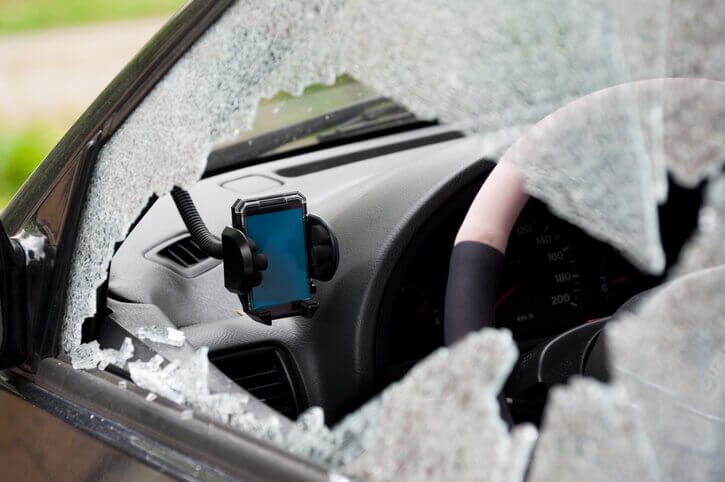Usage-Based Car Insurance (UBI): Save Money in Florida with PAYD and Telematics Car Insurance
February 4, 2025 | by ltcinsuranceshopper



A Complete Guide to Usage-Based Insurance (UBI)
When it comes to car insurance, many people feel frustrated by how prices are calculated. Why should someone who rarely drives or is a safe driver pay the same as someone who drives a lot or has a history of accidents?
This is where Usage-Based Insurance (UBI) comes into play. It’s a modern approach to car insurance that could help you save money based on how you drive. Let’s break it down in simple terms and discuss how it works, the benefits, and what to consider if you’re thinking about getting UBI, especially if you live in Florida.
What is Usage-Based Insurance (UBI)?
Usage-Based Insurance (UBI) is a type of auto insurance that tracks how, when, and how much you drive. Instead of basing your premiums on general factors like your age, gender, or even credit score, UBI uses telemetry (a small device or mobile app) to collect data on your actual driving behavior.
This system can monitor things like:
- How fast you drive
- How hard you brake
- Whether you accelerate sharply
- How often you drive at night
- Your total mileage
By looking at this data, the insurance company can assess how risky you are as a driver. If you drive safely, you’ll likely get lower rates. If you drive aggressively or often at night, your rates might be higher. Usage-based insurance (UBI) puts you in control of your insurance cost.
ALSO READ:
How Does Pay-as-You-Drive Insurance (PAYD) Work?
Pay-as-you-drive insurance (PAYD) is pretty straightforward:
- Setup: When you sign up for pay-as-you-drive insurance (PAYD), the insurer either gives you a small device to plug into your car (known as a telematics device) or asks you to download an app that tracks your driving through your phone.
- Driving Data Collection: As you drive, the device or app collects data about your driving habits, such as mileage or time of day.
- Analysis: The insurance company uses this data to see how much risk you present as a driver. Those who drive less often, or during safer hours, can benefit from lower premiums.
- Adjust Premiums: Your insurance rate is adjusted periodically based on your mileage and driving habits. The less you drive, the more you save with pay-as-you-drive insurance (PAYD).
What About Pay-How-You-Drive Insurance (PHYD)?
Pay-how-you-drive insurance (PHYD) works a bit differently. Instead of focusing only on the amount of driving, it looks closely at how you drive. Safe driving behaviors, like avoiding harsh braking and speeding, can help lower your insurance premiums.
- Telematics Tracking: Like PAYD, pay-how-you-drive insurance (PHYD) uses telematics devices or apps to track your driving. However, the focus is more on how you drive, rather than just how much.
- Behavior-Based Premiums: The safer your driving habits, the more you can save. If you tend to speed or brake suddenly, your premiums could increase. Pay-how-you-drive insurance (PHYD) encourages safer driving habits, making it an excellent option for cautious drivers.
New Florida Vehicle Insurance Laws You Need to Know in 2024
Benefits of Mileage-Based Car Insurance
For low-mileage drivers, mileage-based car insurance can be a game-changer. Traditional policies assume you drive a typical amount, but you can benefit from mileage-based car insurance if you drive less than average.
- Lower Costs for Infrequent Drivers: If you only use your car occasionally, your insurance rates should reflect that. Mileage-based car insurance calculates premiums based on how far you drive, meaning lower costs for those who don’t drive often.
- Fairer Pricing: Instead of paying for a policy that assumes a certain mileage, mileage-based car insurance adjusts your premium according to the actual distance you travel. This makes it a fairer option for drivers with short commutes or those who don’t drive daily.
Telematics Car Insurance: How It Works
Telematics car insurance is the technology that powers UBI. With telematics car insurance, a device or mobile app tracks your driving habits, such as speed, braking, and mileage.
- Device or App: When you opt for telematics car insurance, you’ll either install a telematics device in your car or use a smartphone app to monitor your driving. This allows your insurer to gather data on how safely you drive.
- Real-Time Feedback: One of the benefits of telematics car insurance is that it often gives you real-time feedback on your driving. You’ll be able to see where you can improve to lower your premiums.
Why Driers in Florida are Choosing UBI
1. UBI Saves them from Unfair Premiums Based on Generalized Factors
Many drivers feel it’s unfair that traditional insurance heavily weighs factors like age, gender, or zip code when determining premiums. Usage-based insurance (UBI) fixes this by focusing on your driving habits, not factors out of your control.
2. No More Costly Insurance for Occasional Drivers
If you only drive on weekends or a few times a week, paying high premiums for traditional insurance can feel wasteful. Pay-as-you-drive insurance (PAYD) solves this by offering policies that adjust based on how much you drive, leading to savings for infrequent drivers.
UBI in Florida: Top 3 Companies Offering UBI
If you’re a driver in Florida, you have a few options for UBI providers. Here’s a look at some of the major players offering usage-based insurance (UBI) in the state:
1. Root Insurance
Root is known for basing your rate entirely on how you drive. After a test drive using their mobile app, Root offers you a personalized quote based on your habits. This model closely aligns with pay-how-you-drive insurance (PHYD).
2. Progressive Snapshot
Progressive offers a UBI program called Snapshot, which uses either a mobile app or a plug-in device to track your driving. This program is ideal for those looking for pay-as-you-drive insurance (PAYD) in Florida, as it adjusts based on mileage and driving habits.
3. Allstate Drivewise
Allstate’s Drivewise program rewards you for safe driving behaviors with discounts and cashback. It operates similarly to telematics car insurance, tracking habits like braking and speed to adjust premiums.
What to Look for When Choosing UBI
When considering usage-based insurance (UBI), here are some things to keep in mind:
1. Your Mileage
If you drive a lot, pay-as-you-drive insurance (PAYD) may not be the best fit. But if you don’t drive much, it could save you money.
2. Your Driving Habits
Are you a cautious driver? If so, pay-how-you-drive insurance (PHYD) may help you get the best rates. However, if you frequently brake hard or drive aggressively, you could end up with higher premiums.
Conclusion
Usage-based insurance (UBI) is changing the way we think about car insurance. It offers fairer pricing, lower costs for low-mileage or safe drivers, and an opportunity to improve driving habits. If you live in Florida, companies like Root, Progressive, and Allstate offer telematics car insurance options that can save you money.
Before making a decision, consider your driving habits and comfort with tracking. Whether you’re looking for pay-as-you-drive insurance (PAYD) or pay-how-you-drive insurance (PHYD), UBI could be the perfect fit for drivers tired of one-size-fits-all insurance policies.
RELATED POSTS
View all



